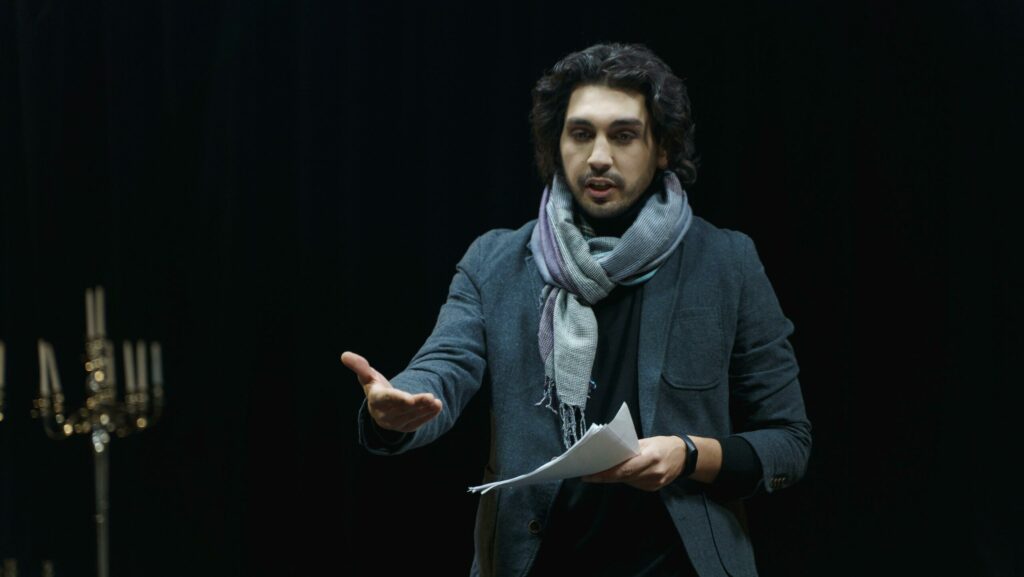
Gabinetto Opera Theater
In a Manhattan Church basement, soprano and Gabinetto Opera Theater (GOT) founder Tessa Browner hazards her first “Mario!” from the edge of a crudely demarcated stage area. She’s impatient but firm – this Tosca will not wait outside Sant’Andrea della Valle for long. Finally, her Mario (Argentine tenor David Morgagni who recently made his debut in the same role at the Teatro Colón in Buenos Aires) opens the door and Browner sweeps in, genuflecting to the Madonna before momentarily clutching her abdomen and wincing in pain.
“Tosca’s entrance should tell us everything we need to know about the character in one moment: her passion, her faith, and her medical condition,” Browner commented during a break from rehearsals. By Tosca’s condition, Browner specifically means irritable bowel syndrome (IBS), a condition she herself suffers from. And the production of Tosca that will open GOT’s inaugural season next week brings that experience to the fore. “Many people assume that Tosca’s urgency to enter the church comes from a place of jealousy. And while that might be true, in this production Tosca shares a motivation with nearly 45 million other Americans: she desperately needs to find a bathroom.”
For Browner, who was diagnosed with IBS-D during her studies at the Eastman School of Music, the lack of operas that reflected her experiences as a gastrointestinal disease sufferer always made her feel excluded from her art form. “It always felt like lazy storytelling to me,” she observed of productions that fail to plumb the depths of their characters’ colons alongside their psyches. “We spend so much time talking about Violetta or Mimi’s tuberculosis, but we never discuss how it’s equally possible that Manon Lescaut actually dies from bowel perforation caused by dehydration-related constipation or that Butterfly develops hemorrhoids from her many hours of waiting for Pinkerton. We need to recenter these narratives.”

Gabinetto Opera Theater
To remedy this problem, she founded GOT last year along with Jeffrey Lowenberg, a gastroenterologist at Mt. Sinai Hospital who treated Tessa in the past and who now serves as the head of GOT’s board. “I’ve always been an opera fan,” Lowenberg added, “but I never imagined I’d be able to combine my love of music with my love for the sigmoid colon. But Tessa’s vision has made all that possible.”
Browner, who is directing this Tosca in addition to starring in it, is passionate about revealing what she calls the “peristaltic narratives that lie just beneath the surface of every opera” and telling comprehensive and human stories absent from standard productions of operas while keeping the score intact. “I don’t want to spoil our production for people, but I can reveal that the stress of her interrogation by Scarpia in Act II triggers a bathroom emergency and audiences will be able to go on that journey with Tosca onstage,” Browner adds, gesturing to the commode discreetly placed in the corner of the Act II set from which the character sings her impassioned, agonized plea to God, “Vissi d’arte.” “It just makes her a more relatable character – who hasn’t been there?”
GOT’s season first season will conclude later this spring with a concert of musical theatre songs and arias by members of the company’s fledgling training program, the Gabinetto Opera Theater Young Artists (GOT YA).



